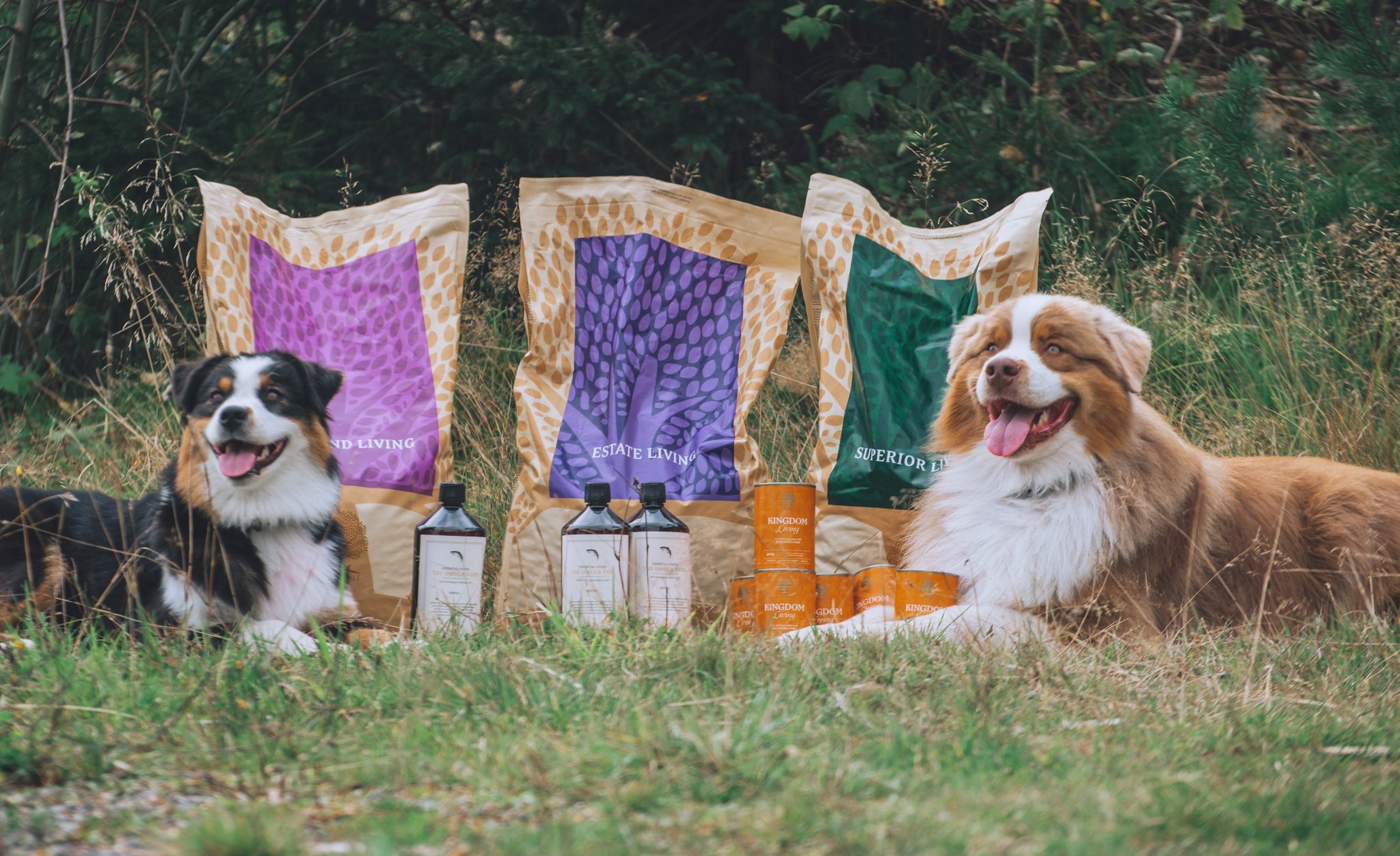Your Cart is Empty

Feeding your puppy the right food is crucial for their growth and development. But how do you know when it’s time to switch from puppy food to adult dog food? Let’s explore the signs and guidelines that will help you make this important transition.
Puppy food is specially formulated to meet the nutritional needs of growing puppies. It contains higher levels of protein, fat, and essential nutrients compared to adult dog food. This helps support their rapid growth, high energy levels, and development.
Knowing when to stop feeding your puppy puppy food involves observing a few key signs. These include age guidelines, physical signs, and behavioral changes.
Different breeds mature at different rates, so it’s important to consider your puppy’s breed size.
Small breeds typically mature faster and can be transitioned to adult dog food around 9-12 months of age.
Medium breeds usually reach maturity around 12-15 months of age.
Large breeds take longer to mature and should stay on puppy food until they are 18-24 months old.
One of the primary indicators that your puppy is ready for adult dog food is the completion of their growth. Once your puppy has reached their expected adult size, it’s time to consider the transition.
Another sign is the stabilization of your puppy’s weight. When they stop gaining weight rapidly, it’s an indication that their growth phase is tapering off.
As puppies grow, their energy levels will change. You might notice that they start to settle down and become less hyperactive, signaling their maturity.
If your puppy starts to eat less frequently or shows less interest in their high-calorie puppy food, it may be time to switch to adult dog food.
Switching your puppy to adult dog food should be done gradually to avoid digestive issues. Here’s how:
Selecting the right adult dog food is essential for maintaining your dog’s health.
Ensure the adult dog food meets your dog’s nutritional needs. Look for a balanced diet with the right mix of proteins, fats, vitamins, and minerals.
Check the ingredient list for high-quality ingredients. Avoid foods with excessive fillers and artificial additives.
Dog treats can be helpful during the transition period.
Use treats as a reward for adapting to the new food. This positive reinforcement can make the transition smoother.
Choose healthy, low-calorie treats to avoid unnecessary weight gain.
Feeding your dog high-quality food can have long-term benefits.
Premium dog food supports overall health, reduces the risk of chronic diseases, and enhances your dog’s quality of life.
Low-quality food can lead to nutritional deficiencies, poor coat health, and increased veterinary visits.
Essential Foods Puppy Food is grain-free, which reduces the risk of allergies and digestive issues.
The extra omega-3 fatty acids in Essential Foods Puppy Food promote healthy skin, coat, and brain development.
Higher protein levels support muscle growth and development, ensuring your puppy grows strong and healthy.
B.O.F stands for Behavioral Optimizing Foods, a principle that ensures stable blood sugar levels and promotes overall wellbeing.
Stable blood sugar levels prevent energy spikes and crashes, leading to better behavior and mood in dogs.
High-meat content provides essential amino acids and nutrients for muscle growth and energy.
The delicious taste of high-meat content food ensures that your dog enjoys every meal, making mealtime a pleasant experience.
Transitioning your puppy from puppy food to adult dog food is a crucial step in their development. Look for signs of maturity, such as age, physical growth, and behavioral changes. Choose high-quality adult dog food to ensure they continue to thrive. Essential Foods Puppy Food, with its grain-free formula, extra omega-3s, higher protein levels, B.O.F principle, and high-meat content, is an excellent choice for a healthy, happy dog.
What age should I switch my puppy to adult dog food?
How do I transition my puppy to adult dog food?
Why is grain-free food important for puppies?
What is the B.O.F principle?
Why is high-meat content important in dog food?


